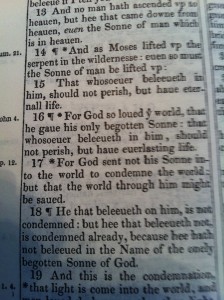This is an important step. Many people who are not financially free either lack the desire or believe financial freedom is impossible. At this juncture of our journey, let me define freedom and then financial freedom.
Freedom: the power to live the way God intends us to live; the power to live the way we ought to live.
Financial freedom: the power to utilize assets, whether they be many or few, to bring glory to God as He provides for daily needs.
Many people would define financial freedom as having a lot of money. However, a person can have a lot of money and be in financial bondage. Another person could have few earthly possessions and be very free financially.
Being financially free is the goal of these daily principles from God’s Word. So far, we have covered:
- Have your priorities right
- Seek God not money
- God owns it all
- Be a good steward
- Be free of debt
Being financially free includes several things:
- Being confident in the provisions of God (Matthew 6:25-30)
- Not anxious about financial matters (Phil 4:6)
- Maintaining a biblical balance of earning, saving, and giving money away (we will touch on these subjects soon)
- Being in control of finances rather than financial matters controlling us
As we press ahead on this journey, check your heart and your situation. Are you financially free? Pause and praise the Lord right now if you are. If you would have to confess you are not, do you desire and believe it is possible to be financially free? If not, that is the place to begin. Spend some time with the Lord and tell Him you want your heart to be in-tune with His desires in this and other areas of life. Keep coming back each day. Together, let us strive and keep on striving to be financially free. Have a great day!
